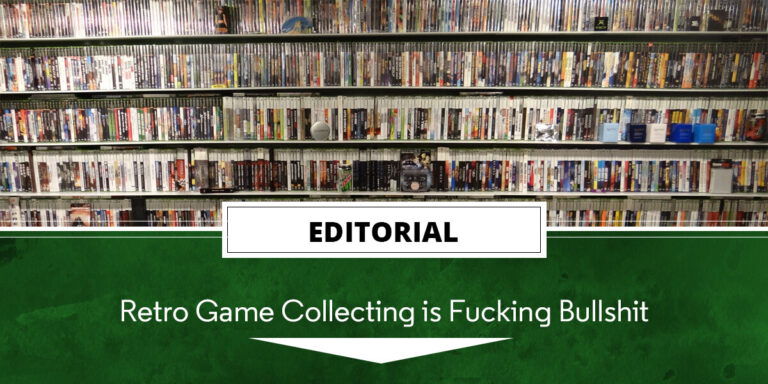If there is one thing that I love to do, it’s collecting retro video games. As someone who didn’t have much growing up, when I finally got my first video game console (A Nintendo GameBoy) I savored every game that I would get as I would either have to save up my allowance or wait for a birthday or Christmas in order to get something to play.
As time went on, I would be able to afford more games… Kind of. As a child of the 90s, when I got the chance to choose between either a PlayStation or a Nintendo 64, I chose to get a PlayStation. Not because of the games or anything like that (or the fact that my spoilt cousin had a Nintendo 64 already), but because I could get a modchip installed into the PlayStation that would allow me to buy games cheaply at the local flea market.Which I did most weekends all the way through to the PlayStation 2 era where I did the same thing. It wasn’t till the PlayStation 3 that I went completely legit when it came to my game purchases.
Why am I telling you this? Well, because in my 40s, I’ve decided that I would get back as much of my childhood as possible, legitimately this time, since during those older days, I sold off those consoles and games in order to upgrade over time.
When I started this endeavor, it was just before the pandemic, when I was able to buy a mod-chipped PlayStation for the low price of $20 off eBay, along with a PlayStation 2 that my girlfriend at the time (Now wife) bought me for $50. From there, I would buy consoles on the cheap, fix them if needed, upgrade them if needed, and jailbreak them if needed.
The reason I turned my back on “going legit” so quickly? Well, what I didn’t take into account when starting all of this is the price of games. When I got my Super Nintendo and Nintendo 64, most of the games were around $20-$50 each, with rarer ones pushing into the $100+ area. PlayStation games were $10 to $40 each, even cheaper if you just bought the discs without the case of labels (Which I printed myself), and other things like still finding games at flea markets thanks to people who didn’t know the value of what they had been a thing as well. All of this kept the beginning of my retro collection pretty cheap…
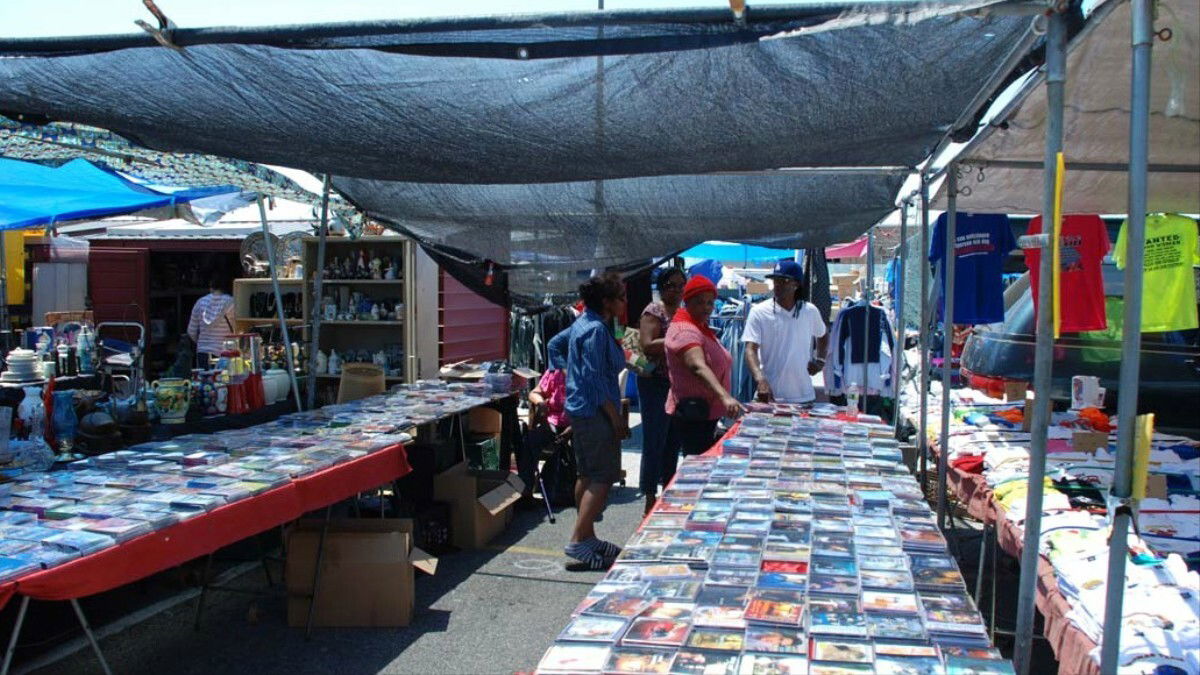
Pandemic 2020: The Rise of the Reseller
We all remember the pandemic that kept us all in our homes with nothing to do except binge-watch TV or play video games. Of course, we do.
During this time in our lives, how many of us took all that extra money we got from the government and pumped it into getting video games… All of us. During the pandemic, Nintendo Switch sales skyrocketed thanks to a little game called Animal Crossing. The Xbox Series S|X and PlayStation 5 both went up for sale during this time, with people grabbing them up in droves, and people were jumping on eBay looking to find something old to play with their kids or on their own.
All of this gave rise to two groups of people: Scalpers and Resellers.
We all know about Scalpers, those evil people who buy up products for the express purpose of selling them to people who didn’t get the product at a much higher price to take advantage of people’s fear of missing out. We’ve done multiple complaints about these people on the Spectator Mode podcast, so I won’t give those scumbags too many column inches here.
The other type of people who started to increase in volume here were the Resellers, much like Scalpers, Resellers are people who will buy up a product at a cheap price only to “flip” it back into the marketplace for the highest price that the market would allow. These people started with things like Final Fantasy VII on PlayStation, taking the price for a complete game from $40 to over $100 overnight, making the $100+ price tag the norm for the market, with prices increasing over time.
These people are the ones who will snipe an auction for something on eBay and instantly place it onto their own storefront profile at double or triple the price, making sure that anyone who wants to buy the game doesn’t do so without paying the inflated market price. They are also the ones who control the market price, with some resellers expressly saying that they are doing this for the profit, not the love of gaming.
Much like Scalpers, these people are scum who are taking advantage of the capitalist market of supply and demand and keep people from doing anything without getting ripped off or finding something for a cheap price.
The pandemic was the time that both groups forced the prices in the marketplace to the prices they are today, with Resellers changing tactics from poaching online to scouring Second-Hand stores, Vintage stores, and even Charity stores in order to get their product to flip for profit and they are proud of it, with many Resellers posting on social media pages like TikTok about their finds.
Once the pandemic ended, video games continued to be a big business model, with the return of the video game-specific second-hand store. The problem with this is that most of those stores are beholden to the problems of running a business: Rent, bills, payroll, etc. All of this makes most game stores put their prices higher than they should be, often pricing themselves out of the market since most of them use online pricing guides or eBay listings to get the base price of games before adding their profit margins into things.
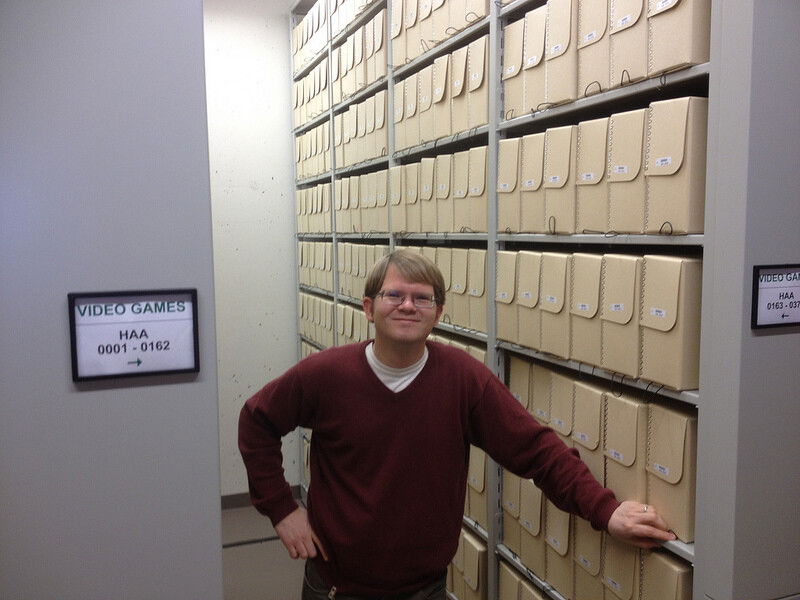
The Rise of the Digital Marketplace, and the Fall of Physical Media
The one thing that people thought would be great for video games was the beginning of the digital store, where you could go and buy a video game without needing to deal with the physical retail store overheads, the Resellers, and Scalpers online, or any other people wanting to make a profit. The online store was meant to be the cheaper option… But that didn’t happen.
For us here in Australia, we have laws in place that state that no marketplace can completely sell the same product for a lower than the “recommended retail price” outside of a sales promotion period (Usually 2 weeks to a month with a 3+ month gap in between sales) in order to keep the online and retail marketplaces “fair” for both styles.
What this does is keep PlayStation and Microsoft from reducing prices like they promised when the online stores launched years ago. They have to keep their prices at the same Recommended Retail Price as the physical stores that they provide stock to.
The issue with this is that the companies use this to keep prices at full retail price long after the physical media is no longer on store shelves, leading to the “Nintendo Effect” where games remain at full retail years after they should be reduced.
The other thing with the online store is that profit mostly goes to the publishing company, which means that corporate greed will make its way into the pricing or the pricing cycle. Remember how DLC or Season Passes used to be cheap at $10 to $15? Well, notice that you are now paying $30 to $50 for the same thing these days. Sure, we could blame “increased production costs” (Which is bullshit to be honest since companies have no issue paying management huge bonuses all the time), but we all know it’s all about profit for shareholders.
The other thing about online stores is that it is about control. The use of online stores means that you go from owning your games to merely licensing access to the games you buy. You no longer buy a game, you buy a license to use the game, a license that can expire at any time or can have things like content change at any time the publisher wants. With a physical game, you at least own something tangible, something that they cannot take away from you or change at their whim (unless you install a patch)
The reduction of the physical media market as it gets folded into the digital marketplace means that physical media is becoming one of those “short supply” types of items, which hits the second-hand market heavily. With fewer physical copies being bought, it means even fewer end up on the second-hand marketplace, driving up prices even further for modern-generation games.
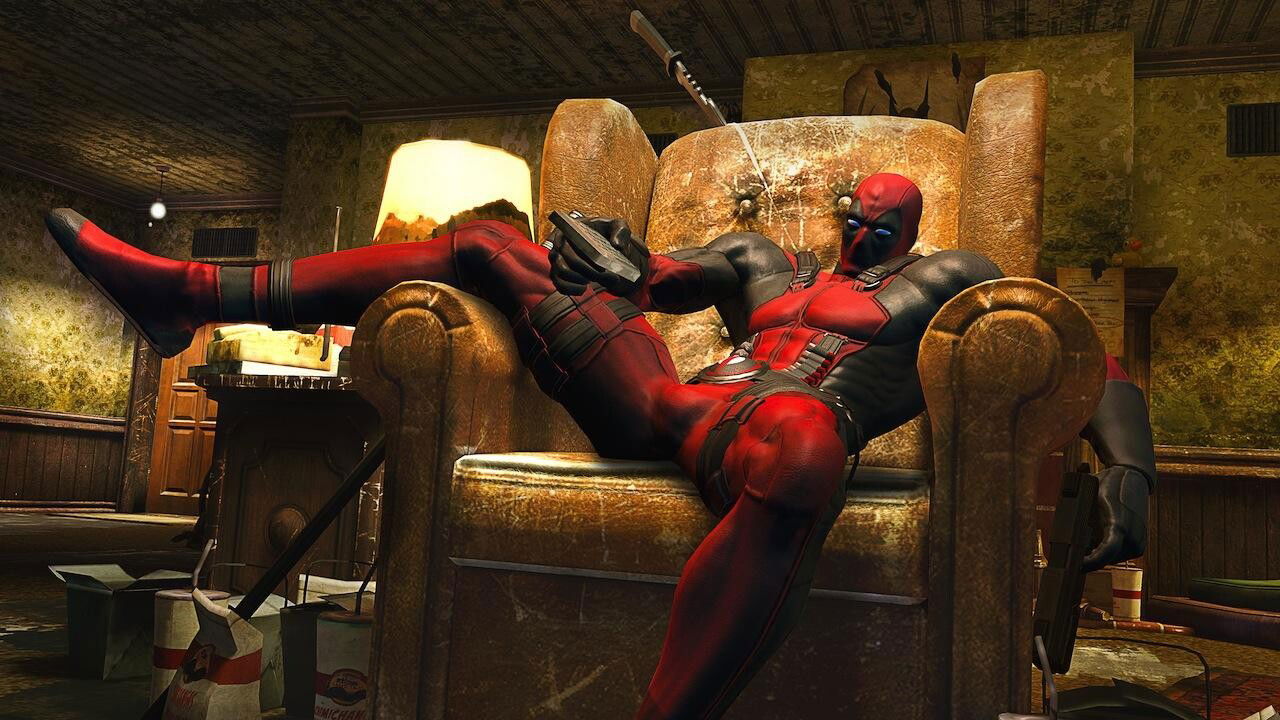
Licensing: It Sucks
Speaking of licenses, have you noticed something that happens now and again with games that are based on brands like Marvel, Transformers, TMNT, etc? They all get some great games released at some time, then after a few years, they are removed from sale to never resurface or be released in some sort of remaster or collection.
This is because of the licensing issue.
Many games end up disappearing because the contract has run out, so the company will remove the game for sale (Not for download as they are required to keep the game online for those who purchased it) instead of paying to keep the game available. Sometimes this is a profitability thing, sometimes the brand’s company decides to change developers and publishers. Business is a shitty thing for people who enjoy the available product.
The by-product of this is that second-hand copies of some games will become “collector’s items” and they are the ones that will become those with high prices. Take Silent Hill for example, a lot of these games are considered high priced collectors items, with the PlayStation version of the first game going to $300+ on eBay, and Silent Hill 2 which has been rereleased on PS3/Xbox 360, going for $200+ (Even the rerelease goes for $100+ at this time). This is because KONAMI decided that they didn’t want to make Silent Hill games anymore, so the price shot up.
Another example, which I’ll repeat later, is Deadpool by Activision, which was released on PS3, Xbox 360, PS4, and Xbox One. This game was removed from online stores because Activision no longer holds the license for the Deadpool brand, making the game hard to get, thus becoming a higher-priced game to get physically. Transformer Devastation is another example, with the game no longer being available due to the license running out.
When a license runs out, the game’s value increases, pushing it out of the hands of people wanting to play it and into the hands of big pocket collectors who want the game just to keep it on a shelf gathering dust.
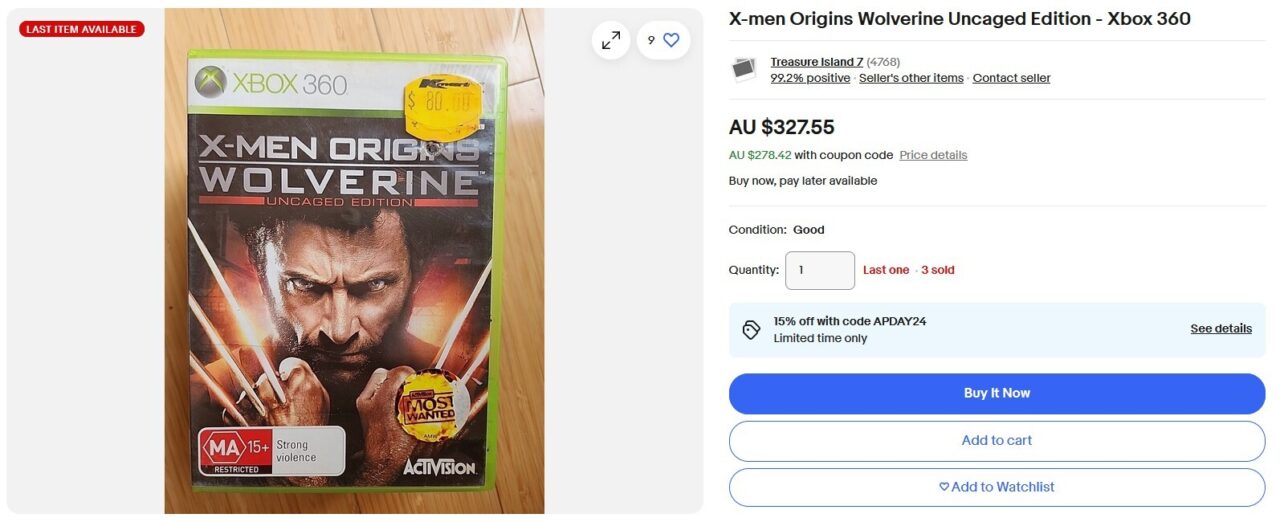
Video Games: A Speculators Market
One thing that I hate about the second-hand market, especially the online ones, is that everything has become a speculators market. This means that when something happens, for example, a massive billion-dollar movie like Deadpool and Wolverine drops at the cinemas, then everything associated with those names skyrockets in value, even if it wasn’t worth anything to begin with.
You’d think that I’d be complaining about the Deadpool game again, which has jumped from about $50 for a PS4 copy to over $200 for the same copy, then you’d be half right. I can somewhat understand the price increase for this game since it’s a rare game that is no longer in print, no longer has an active online copy, and is associated with the movie by name only… But not the other half of the movie title.
Copies of X-men Origins: Wolverine, a pretty crappy cash-in game from the movie of the same name, has gone from $5 a copy to over $300 since the movie came out, mostly thanks to people wanting to cash-in on the name value of Wolverine at the moment… Aka the Resellers are at it again.
Look, there are some reasons for things to increase in price when it comes to something associated with that name, brand, or whatever happens. When Michael Jordan retired, all his trading cards went up in value with good reason. However, sometimes things should not go up that much in price because something associated with it happened, X-Men Origins: Wolverine is one of those things. This is just pure greed, plain and simple.
The other thing about the speculator’s marketplace that artificially raises prices is “Grading”. For those who don’t know, Grading is something that people in the trading card and comic book collecting hobby have been doing for decades. These people send copies of their product to a company that will, for a fee, place the item into an air-tight thick case and inspect it to give it a number between 1 and 10 stating how close to perfect it is.
While I understand this for trading cards and comic books, things that can degrade over time since they are made of cardboard and paper, I do not understand this for video games. Most video games do not degrade over time unless you keep them out in the sun or in a room filled with water. Video games can be cleaned, restored to mint condition, and have replacement parts made for them. So why try to lock these things away and give them a graded number unless you want to sell them at a later point?
The company WADA appeared out of the pandemic, capitalizing on the world’s sudden obsession with getting old games into their collection, with word going around that WADA themselves would put out “Graded 10” games on things that were nowhere near that grade, then buy their own games through auctions at overly inflated prices in order to make Graded Video Games a thing to do.
It’s moves like this that have also pushed up game prices through the roof compared to 5 years ago, and as I like to say “When Prices go up, they rarely come back down again”.
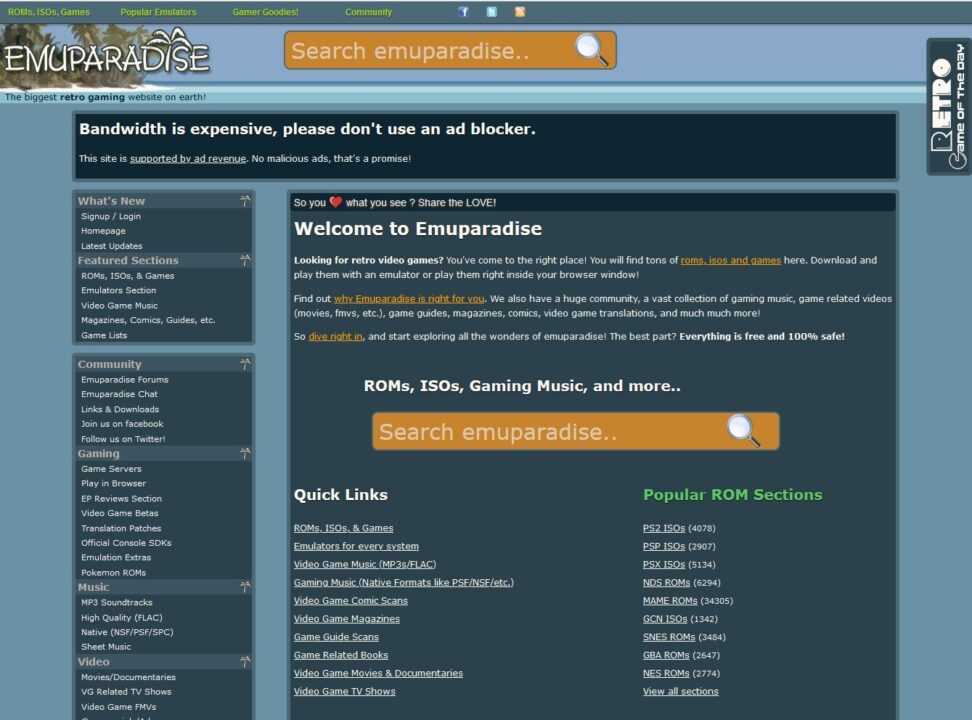
Preservation Becomes Piracy
The biggest thing for video game collectors is that they want to preserve their childhood memories now that they have adult money, while others have done it in order to preserve that hobby in general. Some of the biggest collections in history have come about because the collector wants to make sure that these games of the past do not fade out into history with nothing left but stories of the old days. By preserving the games themselves, we have a record of many eras of advancement in technology and a hobby that millions enjoy.
However, there is no official preservation of these games, with many collections in the hands of private collectors.
The US Library of Congress stores Books, Music, Movies, TV Shows, and other items within its walls, a collection of historic media kept in storage in order to preserve it for future generations. However, that same building holds only 4000 video game titles and some consoles, nothing close to the over 1.1 million other articles contained within. This mostly comes from the people involved in the Library of Congress being of the generation that sees video games as a “waste of time for children”. It might change over time, but we’re still 50+ years away from that.
What we do have in place at the moment, is online digital archives of ROMs, ISOs, and other files that are contained in privately run websites. This, thanks to things like contracts, copyright laws, licenses, and all that other lovely legal bullshit, are considered illegal worldwide as companies are wanting to protect their wallets rather than protect what they have created.
Hell, even Gaming magazines are included in preservation efforts, with nothing being added to any preservation site like the Library of Congress… But they have copies of TV Guide in there, something that is worth nothing and holds no relevance to history anymore. Thank god we have websites like Retromags.
Nintendo leads the way when it comes to killing off any preservation efforts for video games, with emulation website Emuparadise being the main example of Nintendo bullying the protection of their wallets over the preservation of their games. Nintendo got the popular website to shut down all ROM and ISO distribution back in 2018 since Nintendo wanted to, once again, release their popular games through a Virtual Console system that got users to pay for NES, SNES, GameBoy, and other older games… Something Nintendo has been doing since the Wii, with every new version requiring you to pay for the same games all over again as Nintendo does not believe in migrating access between console generations.
As retro gaming has become a big business, both through the second-hand market and also digital storefronts, companies are cracking down on the emulation and distribution of older products since there is a profit to be made. However, by doing this, they have created a new generation of people who would rather sail the digital seven seas instead of paying once again for something they lost access to, got priced out of, or just do not see the high value in paying for once again.
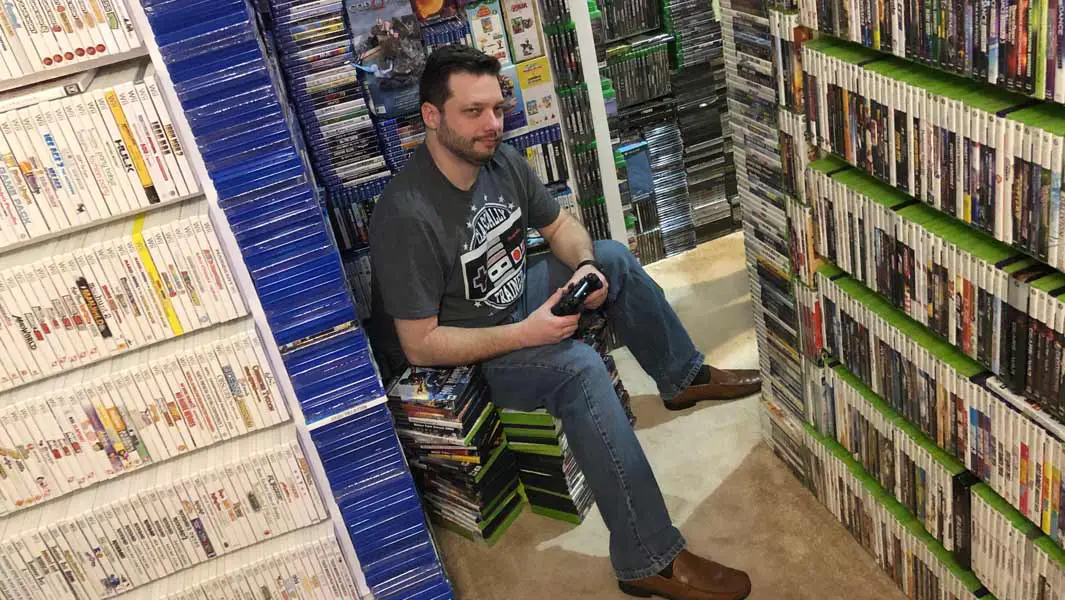
Conclusion: Retro Games Collecting is Only for the Rich Now
So, where do we go from here?
Unfortunately, retro game collecting has become something that has happened to other hobbies like Trading Cards and other things: Greed has entered the chat and changed the way the market works.
Retail stores have priced games so high that many are out of the reach of people who want to collect or play them, online second-hand markets have been flooded with Resellers who keep prices jacked up while they sweep second-hand charity shops clean, and going digital is like a gunslinger in the old West: You never know what might happen when you turn your back.
I really hate to say it, but anyone who wants to collect video games would have a much better time doing something else like collecting comic books. You can still find things at a reasonable price in that market, some might go up in value, but you’ll at least have something to entertain you.
Video games on the other hand, unless you get really lucky or collect the games from Japan (Japanese games are well preserved and have cheap pricing, but even that market is increasing), then you are going to have to make sure you have some deep pockets filled with cash in order to get the games you want.
As I’ve said a few times on the Spectator Mode podcast if you are going to play older generation video games (At this point I’d say PS3/Xbox 360 or earlier) then do yourself a favor and look up some of the many tutorials that are out there which will show you how to modify older consoles to play ROMs and ISOs of those generation games.
Buying retro video games is no longer the fun and cheap hobby it once was. I no longer enjoy doing it, and I’d rather be known as a dirty pirate than someone who collects. The Resellers of the world, along with companies who are cashing in on the nostalgia market are hurting a part of the hobby that once was something to enjoy. Another victim of the cost-of-living crisis? Maybe. A victim of greed? Absolutely.


